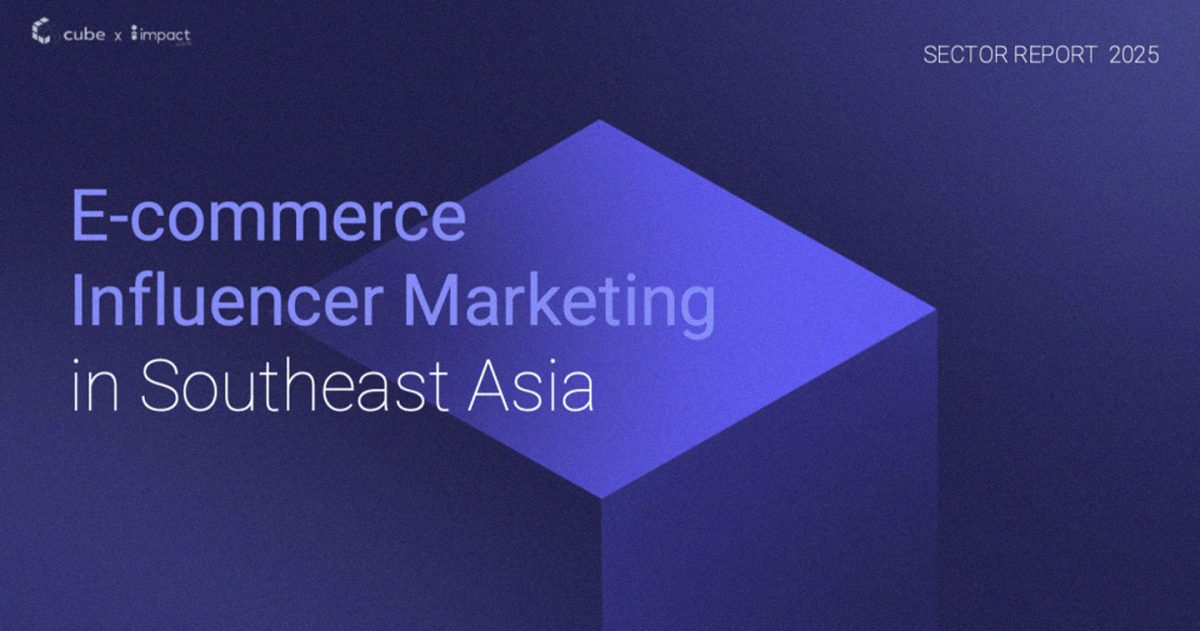SINGAPORE – Affiliate marketing is no longer a supporting player in Southeast Asia’s e-commerce evolution, it has become a central force. That’s the key takeaway from the third edition of the E-commerce Influencer Marketing in Southeast Asia report, jointly released by impact.com, the world’s leading commerce partnership marketing platform,and Cube, a prominent e-commerce market intelligence provider. The study, now in its third year, highlights the accelerating influence of affiliate-driven creator partnerships across Southeast Asia’s fast growing digital economy.
Drawing on insights from over 2,400 consumers, creators and industry experts across six Southeast Asian markets: Singapore, Indonesia, Thailand, Vietnam, Malaysia and the Philippines — the report captures the shifting dynamics of how consumers interact with influencer content and how brands are adapting to meet rising demands for authenticity, value and relevance.
According to the findings, affiliate marketing has emerged as a key strategy for driving conversions, particularly as consumer behaviour leans further into content-driven commerce. Platforms like TikTok Shop, Shopee and Lazada now offer creators strong monetisation potential, with affiliate commissions ranging from 4% to 13%, especially within high-performing verticals such as beauty and fashion.
“As consumer behaviour in Southeast Asia continues to evolve, brands need to shift away from traditional influencer models and vanity metrics, and instead embrace long-term partnerships that influence genuine purchase behaviour. Through our research with Cube, the results reinforce that performance-based marketing sits at the core of brands’ success in reaching and influencing consumers,” said Adam Furness, Managing Director for APAC, at impact.com. “Strategies such as investing in affiliate models are now becoming the foundation for sustainable and scalable growth, and we’re seeing more of this throughout the region. This year’s research then reinforces the importance of focusing on developing connections with creators in a way that drives both authenticity and measurable outcomes.”
The key findings include:
1. Trust Declines, Authenticity Rises
As audiences grow increasingly skeptical of overexposed, promotional content, trust in mega-influencers (1M+ followers) has dipped significantly – only 59% of consumers now report being influenced by them, a 7% drop from 2024. In contrast, micro and nano influencers continue to maintain higher perceived authenticity, suggesting a shift in consumer preference towards more relatable creators.
2. Key Opinion Sellers (KOS) on the Rise
A new generation of creators is emerging: Key Opinion Sellers or KOS. These are influencers who not only endorse but actively sell products – most notably seen on TikTok Shop. In Thailand, nine out of ten top creators on the platform are now KOS, blending entertainment with commerce in real time.
3. Affiliate-Driven Conversions Gain Ground
More than 83% of consumers across the surveyed markets reported making purchases through affiliate links. The beauty and fashion sectors lead the way, with 62% and 54% of consumers respectively making purchases through affiliate-driven recommendations.
4. Marketplace as a Discovery Engine
Marketplaces have solidified their role in product discovery, with 34% of respondents turning to platforms like TikTok Shop, Shopee, and Lazada as their first touchpoint narrowly edging out brand websites (32%) and influencer channels (31%). This reinforces the power of creators operating within commerce-enabled platforms.
5. Learning Joins Entertainment as a Driver of Engagement
While entertainment remains the primary reason consumers engage with influencer content (77%), a growing segment. 64% is seeking educational value. This reflects a maturing digital audience that looks to creators not just for laughs or trends, but for guidance, tutorials and trusted product recommendations.
The report underscores a pivotal moment for brand marketers: those who continue to prioritise high-follower counts over conversion-focused partnerships risk falling behind. Instead, the report advises brands to:
- Build durable, data-driven affiliate strategies
- Prioritise creators who blend relatability with commerce fluency
- Integrate performance-based metrics into their influencer marketing KPIs
- Embrace platforms and formats that offer shoppable content and measurable ROI
In addition to robust consumer data, the report includes interviews with creators, agencies, and tech enablers to deliver a multidimensional view of the e-commerce influencer ecosystem in Southeast Asia.
The full E-commerce Influencer Marketing in Southeast Asia 2025 report is now available from impact.com and Cube.









